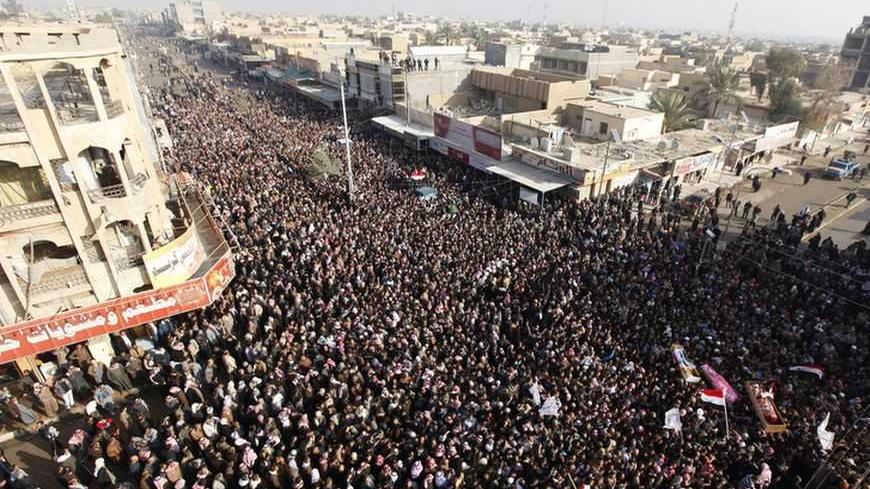This is not the first time that Prime Minister Nouri al-Maliki has been accused of being a dictator. For more than a year, senior politicians have been leveling this charge, long before it ever rung out as the defining chant of the demonstrations in Anbar and other Sunni cities.
Assessing the interplay of accusations between Iraqi political parties is a highly sensitive task. It must be approached cautiously and credibility must be granted sparingly due to the escalation in the nature of the accusations, having started with corruption, terrorism and subordination to foreign countries, and ending with dictatorship.



